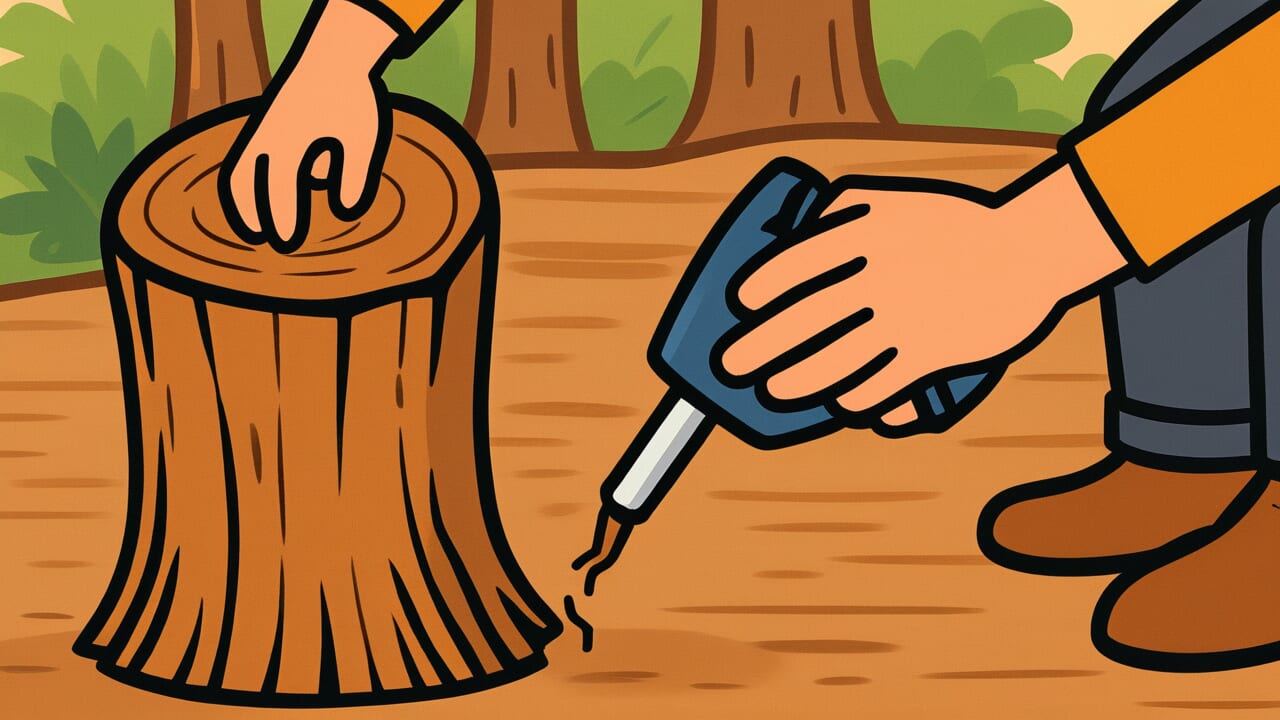How to Read “Dress even a tree stump”
Kikabu ni mo mono kisaseyo
Meaning of “Dress even a tree stump”
“Dress even a tree stump” is a proverb that teaches us to treat everything with care, even things that seem worthless or unimportant.
A tree stump is what remains after a tree is cut down. It seems to serve no purpose anymore.
The saying tells us to put clothes on even such a thing and treat it with care. This extreme example sends a strong message: don’t treat anything carelessly.
People use this proverb when they’re about to throw something away or dismiss something as unimportant. It makes you think twice before deciding “this has no value.”
Today we live in a world full of things that are easily thrown away. But this proverb reminds us to see the value in things and respect everything around us.
It teaches that even seemingly worthless things might have some meaning or use. We should keep this perspective in mind.
Origin and Etymology
No clear written records explain the origin of this proverb. However, we can learn interesting things from how the phrase is constructed.
“Kikabu” means a tree stump, the part that remains after a tree is cut down. It no longer serves as a tree and appears to have no value.
To “dress” such a stump by putting cloth or clothing on it might seem strange at first.
This saying likely grew from Japan’s traditional spirit of valuing all things. Before and during the Edo period, materials were precious.
People believed in not wasting anything. Old cloth became cleaning rags, and those rags were used until completely worn out.
In such a lifestyle, people needed teachings about not treating even seemingly worthless things carelessly.
By using the extreme example of a tree stump, the proverb makes a strong point. It says “if you should care for even something this worthless, then you should certainly care for everything else.”
This exaggeration is what makes the proverb so memorable and powerful.
Usage Examples
- I maintained my old tools with the spirit of “dress even a tree stump,” and now my grandchildren happily use them
- I was going to throw away these fabric scraps, but remembering “dress even a tree stump,” I kept them and they really came in handy
Universal Wisdom
“Dress even a tree stump” contains deep insight about the dangers of human judgment.
Every day we unconsciously rank things by value. Useful things, beautiful things, new things have value. Everything else is worthless.
But is this judgment really correct? This proverb warns us against such human arrogance.
By using a tree stump as an example—something everyone would consider worthless—our ancestors tried to convey an important truth.
Value is not absolute. It changes depending on the heart of the person looking.
What seems worthless today might be needed tomorrow. What’s meaningless to you might be treasure to someone else.
Thinking more deeply, this isn’t just about objects. In human relationships too, we tend to judge others.
We decide “this person is useful” or “this person has no value.” But every person has dignity, and every existence has meaning.
This proverb has been passed down through generations because the human tendency to “judge value” never changes across time.
Don’t forget humility and respect. That’s the universal wisdom for becoming a mature human being.
When AI Hears This
In complex systems science, small changes to a system can amplify exponentially over time. This is called sensitivity to initial conditions.
In weather systems, for example, a tiny air disturbance from a butterfly flapping its wings in Beijing could potentially cause a storm in New York weeks later. This is the butterfly effect.
Let’s reconsider the act of dressing a tree stump from this perspective. A small investment in a tree stump—an “almost dead element”—seems probabilistically wasteful at first glance.
But in complex systems, you cannot predict in advance which elements will become important nodes in the future.
Birds might nest around the stump. Those birds might carry seeds. New plants might grow. They might change the soil.
Eventually, an unexpectedly rich ecosystem might emerge.
What’s important is that this chain is deterministic yet unpredictable. It follows physical laws, but tiny differences in initial conditions create dramatically different results.
That’s why a strategy of allocating resources even to elements that intuitively seem “wasteful” becomes rational.
This proverb empirically grasped that the optimal strategy in complex systems isn’t “efficient selection and concentration” but “diversified investment in various possibilities.”
Lessons for Today
This proverb teaches you the courage to pause before judging value.
We live in a society that values efficiency. Things that don’t show immediate results or visible benefits are easily discarded.
But truly important things often aren’t immediately apparent.
Old friendships, time-consuming hobbies, efforts that don’t quickly bear fruit—these might look like “tree stumps” at first glance.
But by putting your heart into them and continuing to treat them with care, unexpected richness can come to you.
This proverb also connects to environmental issues. Moving from a disposable culture to one that values and uses things for a long time.
This isn’t just about saving money. It’s a way of life that respects all things.
What do you currently think has no value? Try looking at it from a different angle.
New possibilities might be hiding there. A caring heart will make your life richer.



Comments